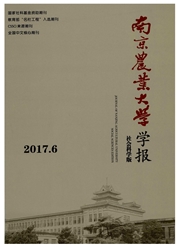

 中文摘要:
中文摘要:
根据食品企业的特点,基于利益相关者理论,对食品企业社会责任进行了分析,在此基础上尝试构建了食品企业社会责任评价指标体系,并以2006-2010年上市食品企业为样本,对其社会责任状况进行了描述和评价.结果表明:近年来,我国上市食品企业社会责任意识和行为表现呈逐年提升与好转的趋势,但总体水平偏低,个体间差异较大;从利益相关者的类别来看,对股东和债权人的责任最为重视,对消费者的责任较为忽视,对供应商及经销商的责任最为缺失.这一结论为寻找食品安全问题频发的深层次原因、探求食品安全问题的解决路径提供了理论依据.
 英文摘要:
英文摘要:
According to the characteristics of food enterprises,an analysis of food enterprise social responsibilityfrom the perspective of stakeholders was performed. An evaluation index system was built up on the basis of thisanalysis. The social responsibility was subsequently described and evaluated using this system,taking the foodcompanies listed between 2006 and 2010 as samples. It was shown that although the overall situation has been im-proved annually since recent years,in general,the awareness and implementation of social responsibility of foodcompanies in China is at a comparatively low level with wide individual gaps in-between. In the stakeholders'o-pinion,the attentions from food companies were mostly paid to the shareholders and the creditors,followed by theconsumers. The downstream food providers and distributors were concerned the least. The results of this study pro-vide useful information for seeking for the reasons and solutions for the frequently occurred food safety problemsin China.
 同期刊论文项目
同期刊论文项目
 同项目期刊论文
同项目期刊论文
 期刊信息
期刊信息
